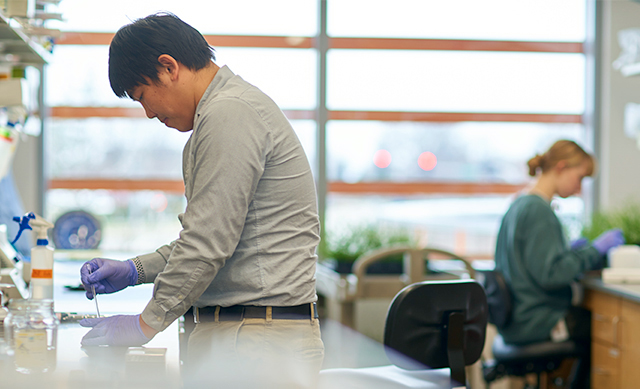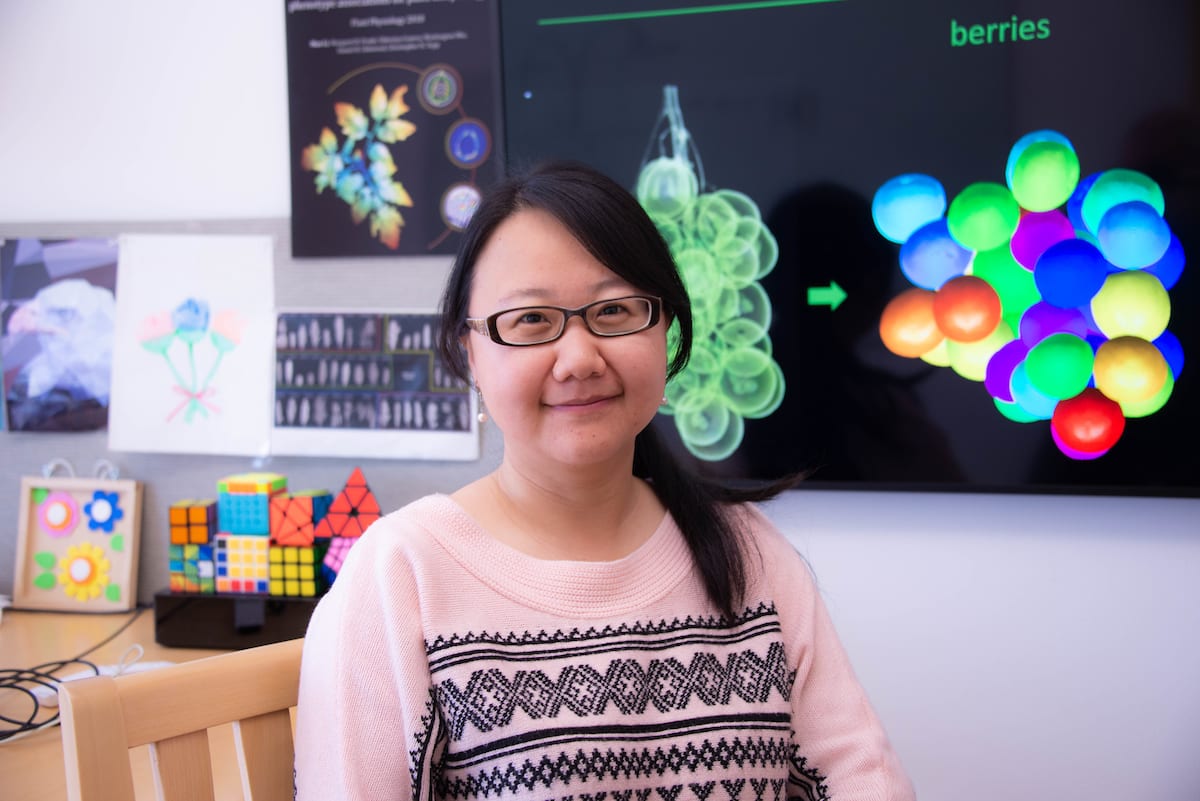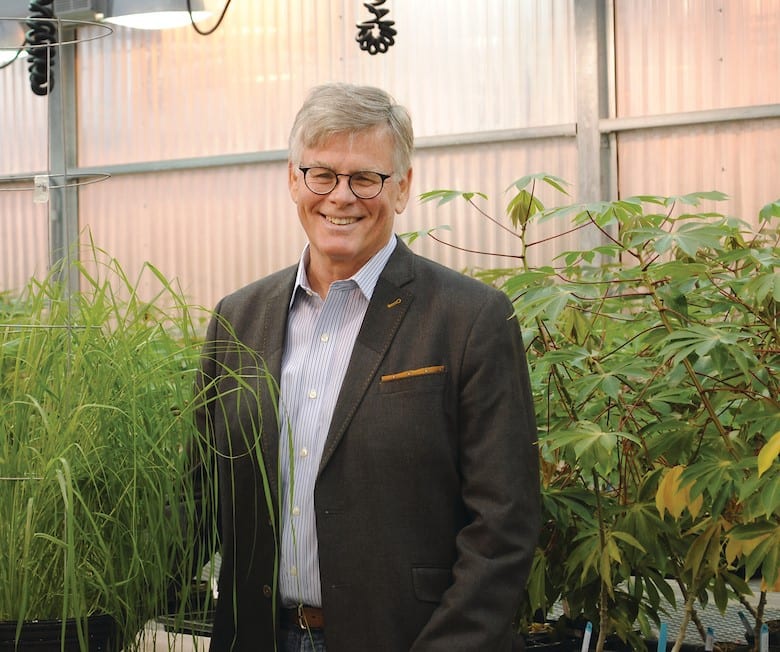An Early Spark
Peng Liu’s first memory of his lifelong fascination with plants goes back to grape vines that grew on the front of his childhood home. Each year, as the grapes started to ripen, Peng couldn’t wait to taste them and search for the sweetest ones among them.
When he first learned about photosynthesis in grade school, his interest grew even deeper. He was captivated by the concept of solar energy as a major resource for the Earth and plants’ extraordinary ability to convert light into organic matter that humans can use. He saw photosynthesis as an extraordinary fact of life on Earth that we often take for granted. Right away, he wanted to learn more about plants and the mechanisms underlying the process.

Senior Research Scientist Peng Liu works in the Danforth Center’s Slotkin Lab. His research is focused on genome editing and transposable elements.
From Research to Reality
Now, Peng has been working in plant research for a decade. He focuses on genome editing and transposable elements. He is working on a new technology for controlling transposable elements as genome editing tools and then implementing that technology in key crops.
“The world needs more sustainable agriculture in future, and genome editing technologies have offered promising ways to improve crops to meet this goal,” Peng says. “My research is focused on delivering the next generation of highly efficient, precise, and cost-effective gene editing solutions for crop improvement.”
The idea of continuing to improve these technologies motivates Peng every day. He says that he cannot stop thinking about ways to further enhance what he has already built.
But it isn’t just for himself that he is doing this work. “The thing I am most proud of is my ability to translate basic research into real-world applications,” Peng says. “Genome editing, as a rapidly evolving field, is already revolutionizing agriculture. But its progress is hindered by limitations including consumer acceptance. The goal is to develop more accessible agricultural technologies.”


